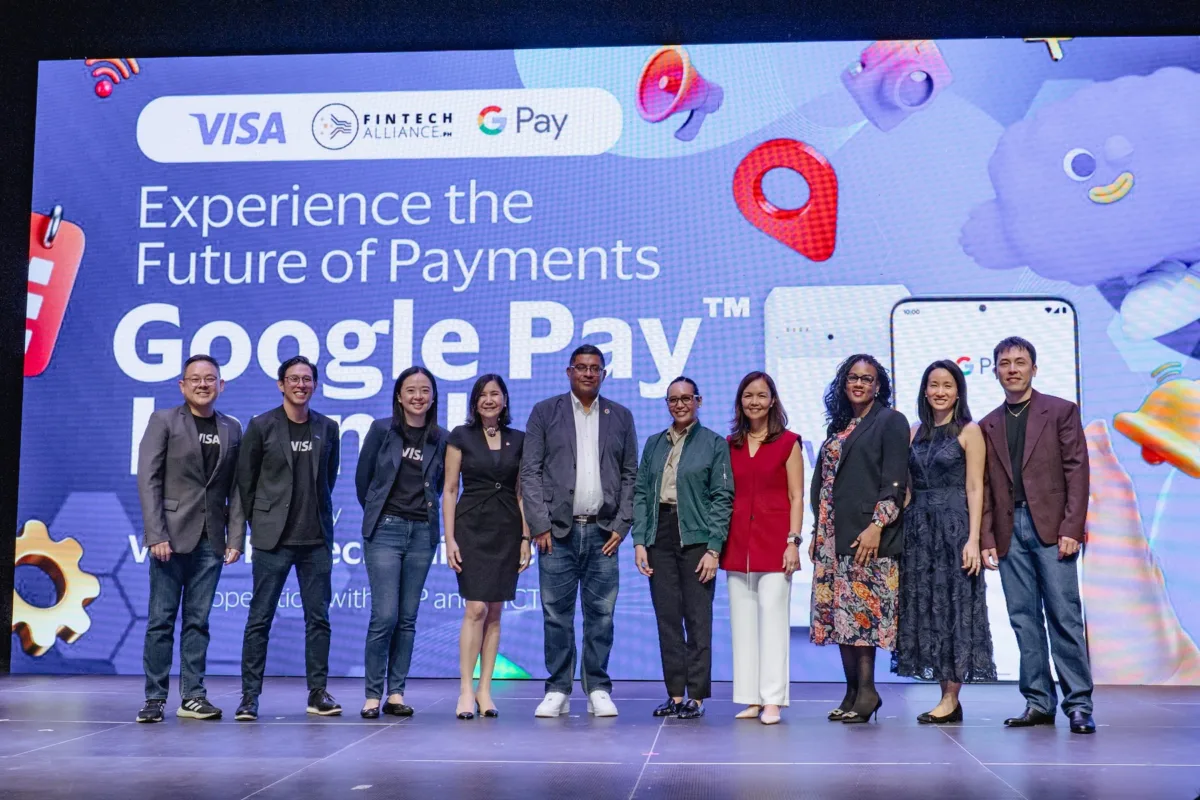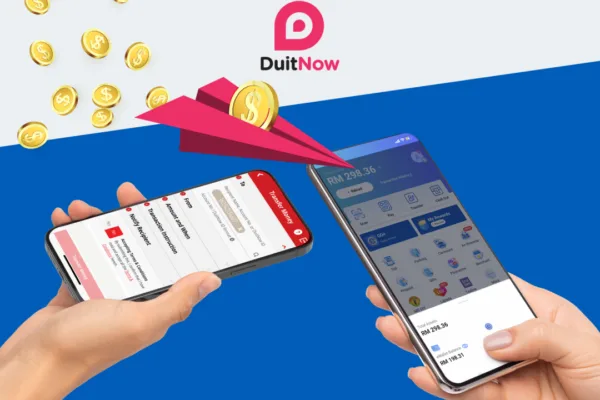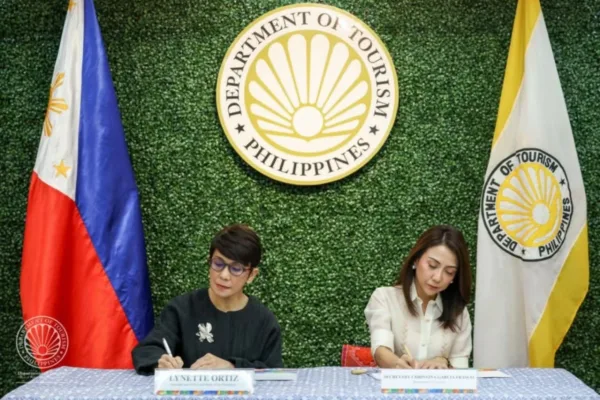Global payments leader Visa has enabled Google Pay support for Visa credit and debit cards in the Philippines, marking a significant step in advancing the country’s digital payments ecosystem.
Visa cardholders can now add their cards to Google Wallet and use Google Pay for tap-to-pay transactions at contactless-enabled terminals, as well as for online and in-app purchases.
The launch brings the Philippines in line with other Southeast Asian markets — such as Singapore, Malaysia, Vietnam, and Thailand — where Google Pay operates with Visa’s network tokenization technology, a security standard that replaces sensitive account details with unique digital tokens.
Visa introduced the service in collaboration with FinTech Alliance and Google, gathering more than 200 banking, fintech, and technology leaders in Manila to mark the rollout. The service is supported at launch by seven issuers: Chinabank, EastWest Bank, GoTyme Bank, Maya Bank, RCBC, UnionBank, and Wise.
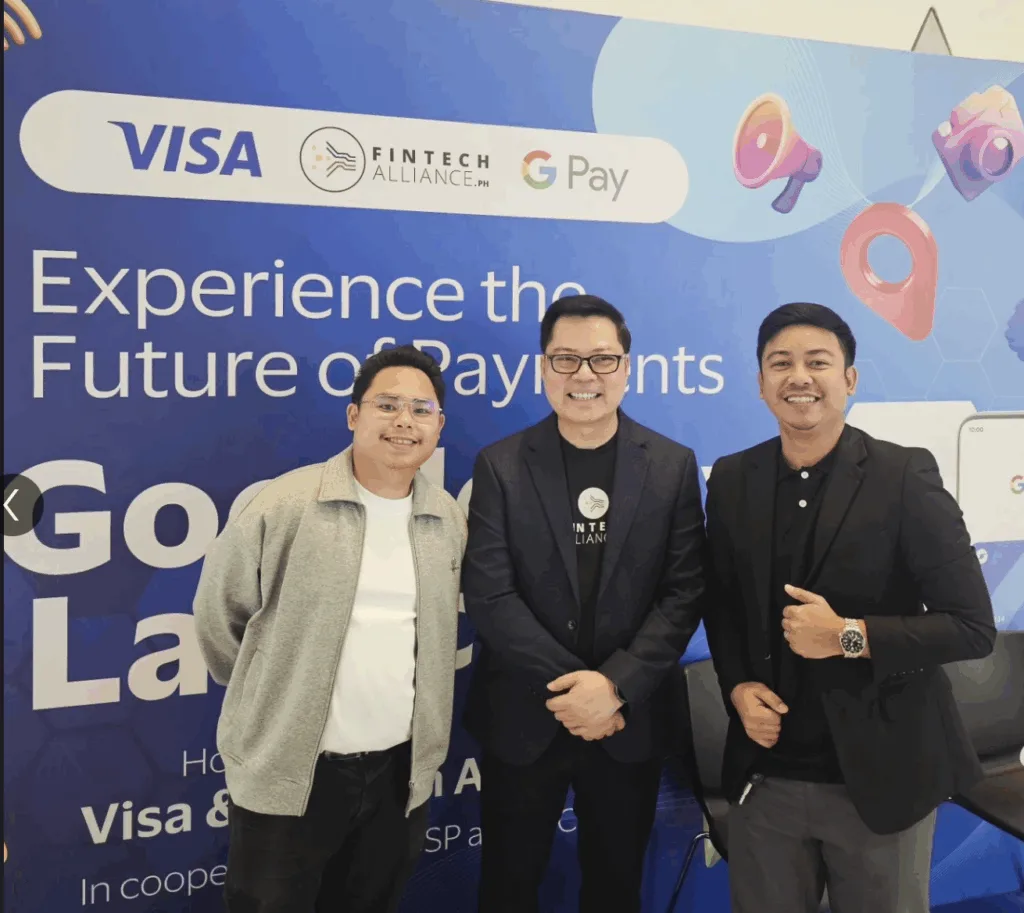
Fintech Alliance’s Lito Villanueva (center) poses with other guests during the launch of a Visa-enabled Google Wallet and Google Pay
Tokenization to drive security and adoption
Visa emphasized that every Google Pay transaction is backed by its tokenization engine, which has issued more than 10 billion tokens globally as of 2024.
Each time a card is added to Google Pay, the actual card number is replaced with a secure digital token stored on the user’s device.
This token, along with a dynamic cryptogram, authorizes each transaction without revealing the customer’s actual account information—a mechanism shown to reduce payment fraud by over 58% in Asia Pacific.
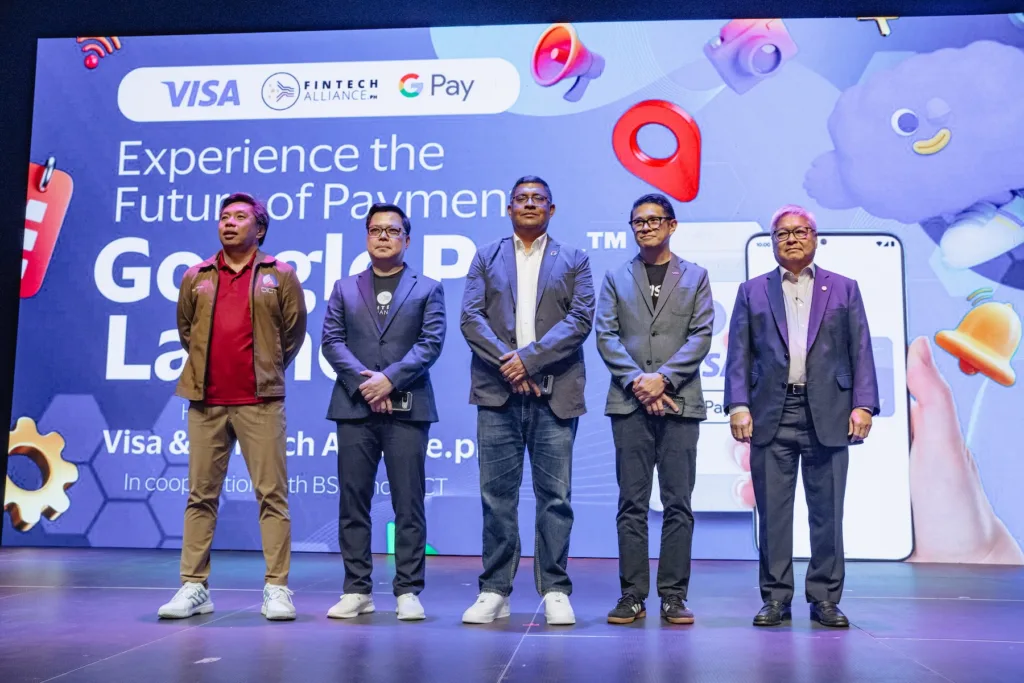
DICT Secretary Henry Aguda (left) leads the launch of Visa Google Pay in BGC. Joining him are Visa Philippines Country Manager Jeffrey Navarro, Fintech Alliance PH Chair Lito Villanueva, Google Payments’ TG Ramakrishnan, and BSP Deputy Governor Mamerto E. Tangonan
“Google Pay amplifies the benefits of Visa for consumers, businesses, and our banking partners,” said Jeffrey Navarro, Visa Country Manager for the Philippines. “Each payment is protected by Visa’s network token, which can prevent fraud while ensuring a seamless experience. By bringing this capability to shops, public transport systems, and tourist destinations, we support the Philippines’ move toward a cash-lite economy and further strengthen financial inclusion.”
Visa reported that its token service contributed a US$2-billion uplift to Asia Pacific merchants in 2023 due to increased authorization rates linked to tokenized credentials.
The company has also issued more than 10 billion tokens as of 2024, with more than 1.5 million e-commerce merchants transacting with Visa tokens everyday[1]. Visa’s Token Service (VTS) has since contributed to a US$2 billion uplift[2] for merchants in Asia Pacific in 2023, while payment fraud rates have been cut by more than half (58%)[3]
Merchant push: Google Pay upsize promo with Pick Up Coffee
To support merchant adoption, Visa launched a promotional campaign with Pick Up Coffee across 100 participating stores nationwide. Customers who pay with their Visa card receive a free drink upsize, with an additional ₱50 discountfor those who tap to pay using Google Pay.
Seamless payments for travelers
The Google Pay rollout also aims to streamline payment experiences for travelers. Visa’s Global Travel Intentions Study shows that 97% of Asia Pacific travelers prefer to bring cards over cash, while 44% of tourists in the Philippines report encountering payment acceptance issues.
With Google Pay now active in the country, Visa expects fewer frictions for both inbound tourists and Filipinos traveling abroad, as contactless and tokenized payments gain wider acceptance across the region.
Digital payments momentum in the Philippines
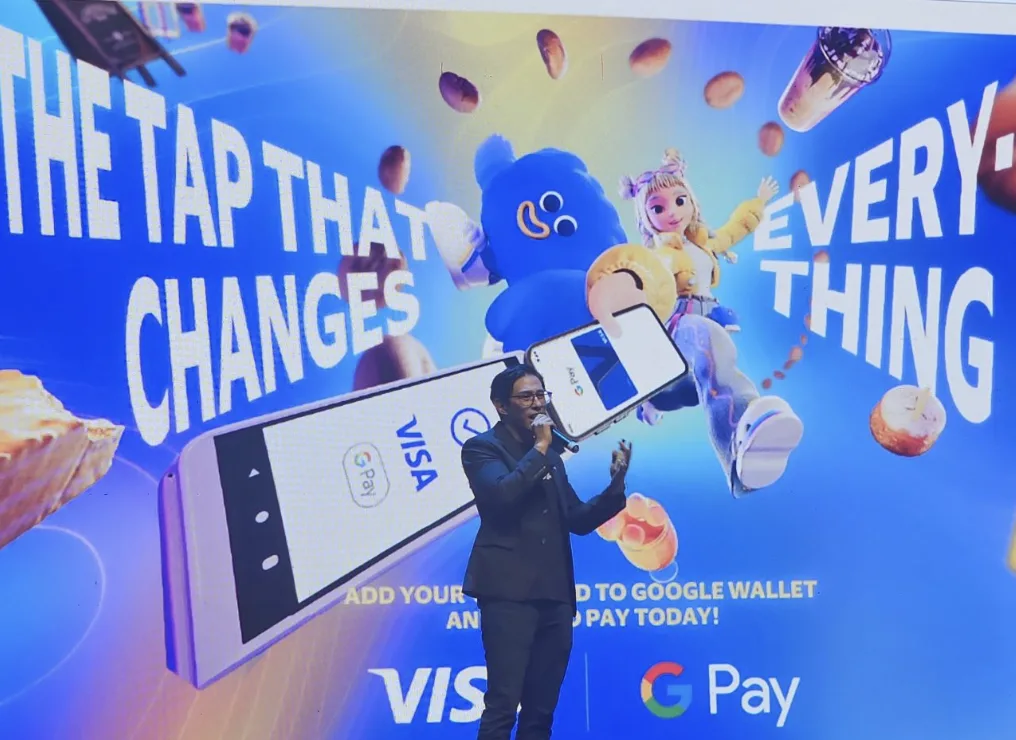
As the Philippines accelerates its shift toward digital payments, the launch of Google Pay also offers seamless and secure payment experiences for both Filipinos traveling abroad and visitors traveling to the Philippines.
Across the Asia Pacific region, 97% of travelers [4]say that they will bring credit, debit, or prepaid cards on their trips, while only 17% intend to bring foreign currency. Visa’s research found that in the Philippines, 44% of tourists report encountering various payment problems, including non-acceptance by merchants.
Data from the Bangko Sentral ng Pilipinas (BSP) shows digital retail transactions accounted for 57.4% [5] of all payment volume in 2024 — already surpassing national targets and putting the country on track to hit 70% digital payments by 2028.
Under BSP guidelines, Google Pay is classified as a technology service provider, not a fund-holding entity. Users’ Visa cards—whether credit, debit, or prepaid — remain linked to their issuing bank accounts.
—
[1] Visa. (2024, June 4). Visa issues 10 billionth token, generating $40 billion in incremental e-commerce globally. Visa Newsroom. https://usa.visa.com/about-visa/newsroom/press-releases.releaseId.20701.html
[2] Processed payment volume using tokenised credentials over VisaNet in AP region for the year Jan to Dec 2023 multiplied by the authorization uplift.
[3] Visa Risk Datamart, Global, FY22 Q1–Q4 Token Fraud Rate vs PAN Fraud Rate by PV for merchants with over 1,000 CNP token transactions per month per country. Merchant’s individual results may vary.
[4] Visa. (2023). Global Travel Intentions Study. https://usa.visa.com/partner-with-us/visa-consulting-analytics/economic-insights/chinas-reopening-sets-global-travel-on-path-to-full-recovery-in-2023.html
[5] Bangko Sentral ng Pilipinas. (2024). Report on E-payments Measurement. https://www.bsp.gov.ph/PaymentAndSettlement/2024_Report_on_E-payments_Measurement.pdf




